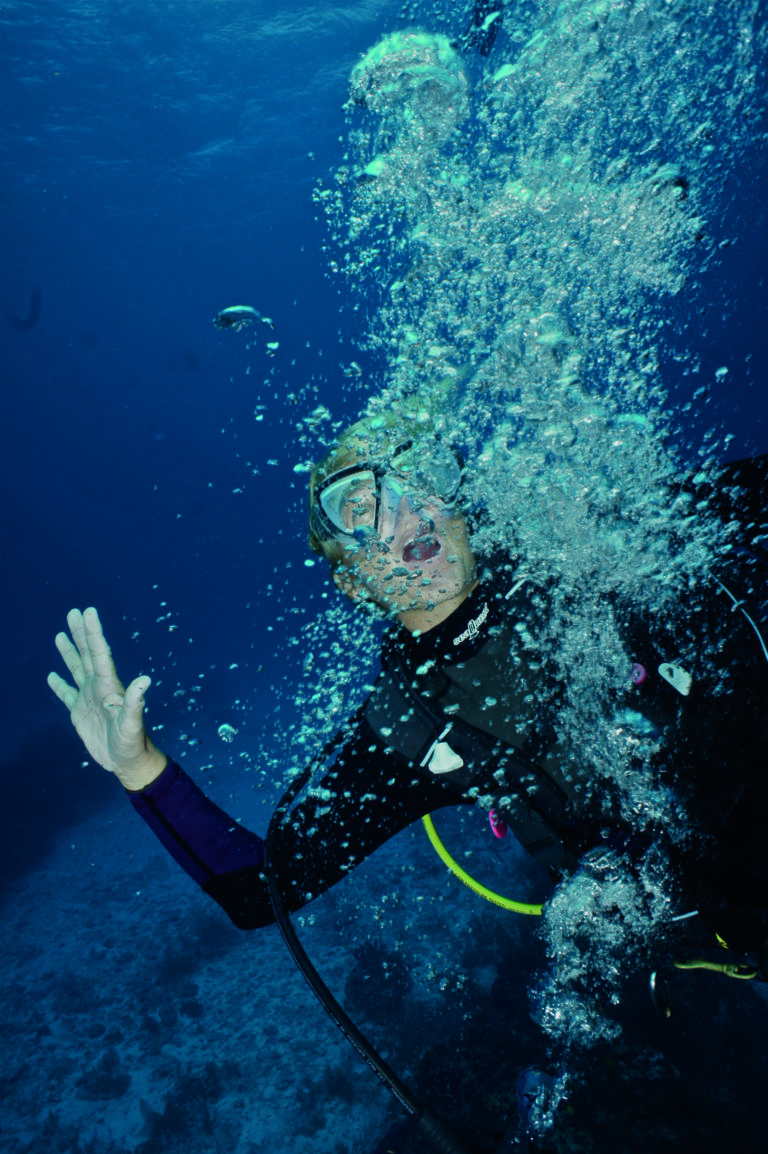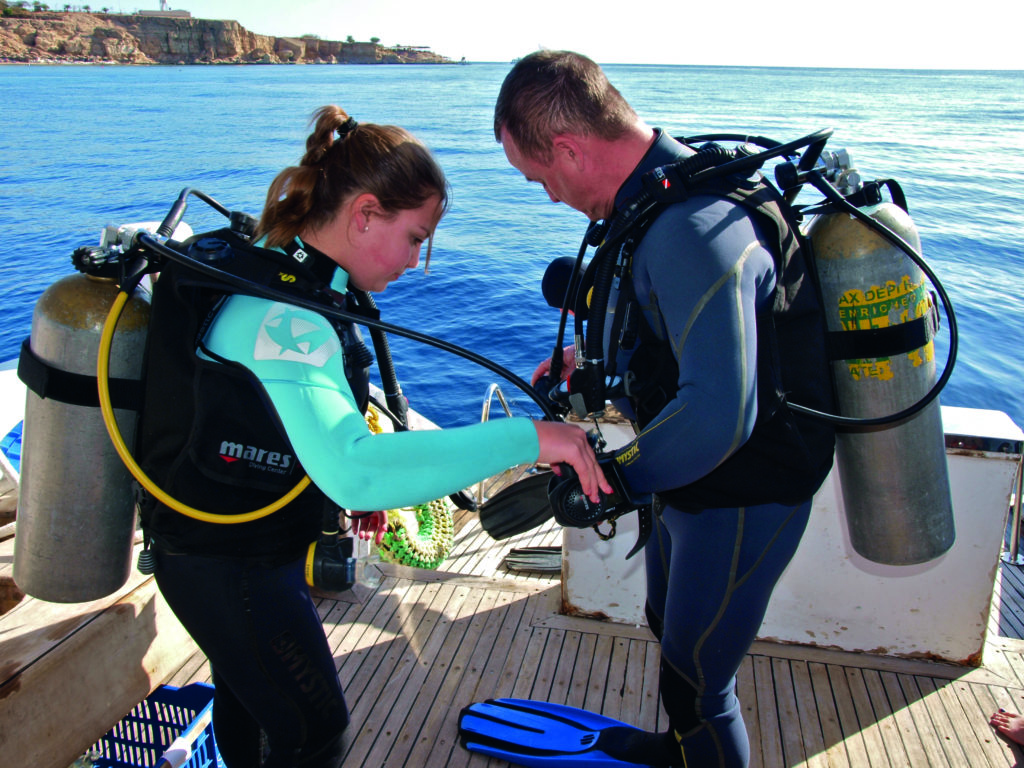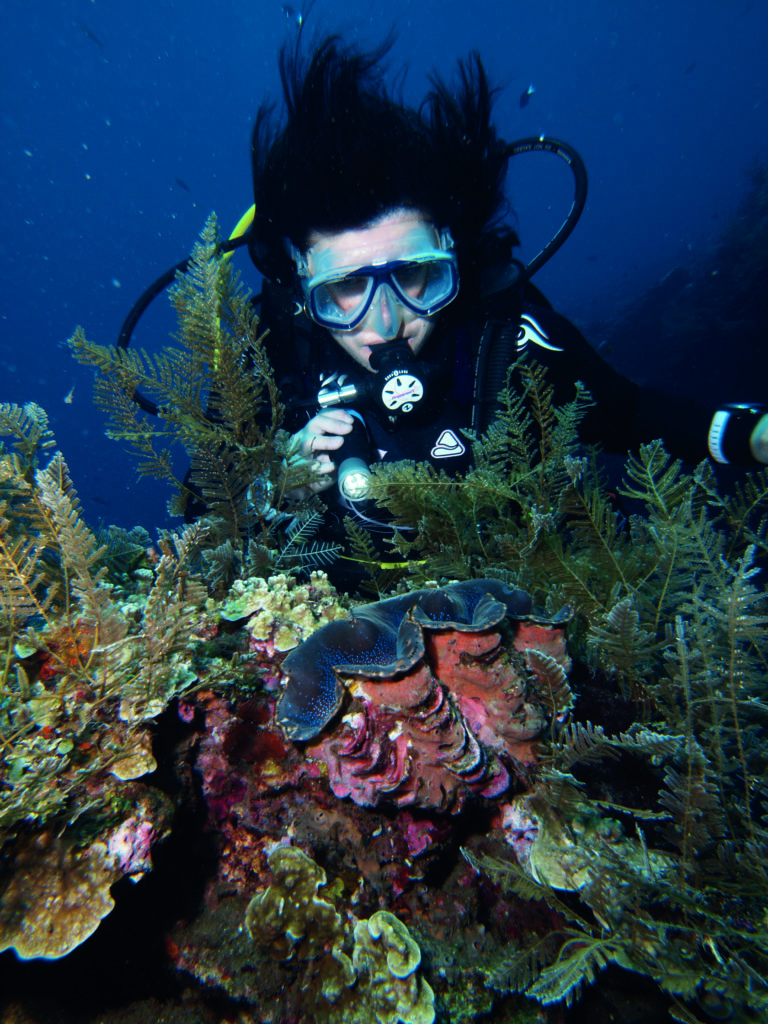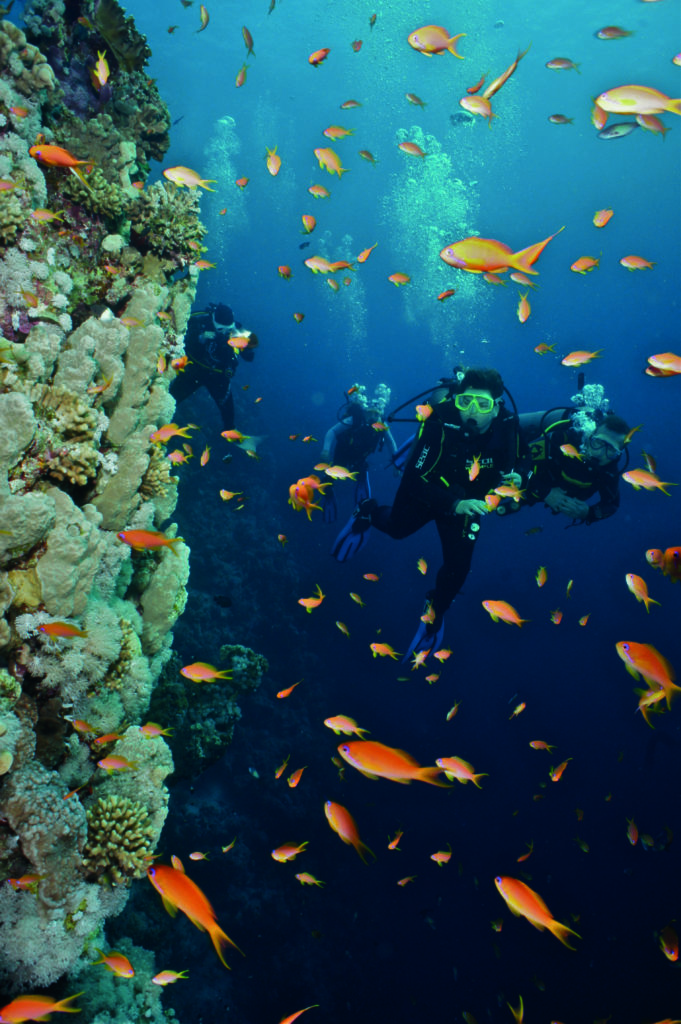We all push our boundaries, either intentionally or accidentally when circumstances change. How do we learn from what happens? A panel of experts considers the question – photography by MARK EVANS
IANTD’s Tim Clements: “Let’s be honest from the outset, we all make mistakes through forgetting something, doing something we should not have done, or trying something new that doesn’t quite work. These ‘mistakes’ can provide us with valuable learning about our capabilities, or the nature of the challenge we have set ourselves.
“The challenge we also face as professional educators is to ensure that these are safe and do not break the standards that underpin our agency with proper dive training. The same approach is valuable for sport divers, and we were all once sport divers, pushing boundaries and our own experience.
“There is great value in the idea that educators should still be advancing their own experience with proper diving skills, because this not only gives them new subjects, but keeps their insight into student learning fresh, by being a student themselves. Admitting the possibility of failure is important and doesn’t always mean we should not do something, if we can manage the risk.
“So, how do we stay safe when heading into territory where we know we may fail? The first step here is planning. What are we intending to do? What can we see that will go wrong and how can we solve that? If it does go wrong, how do we ‘fail well’ and safely?
“This process will identify a host of actions or preparation that will make everything go better. The second step is to practise in safety. For us as pros that means with our peers, without students. It’s an irresponsible instructor that tries to teach a new skill or technique on live students. In the same way, it’s an irresponsible diver that hops in for a challenging dive in new or untried kit.
“We can quote Donald Rumsfeld and his ‘unknown unknowns’ for the next bit. In the event of the plan not working out, or good old failure creeping in, our rescue skills and scenarios need to be just as well thought out and rehearsed. This is where it really counts, so good preparation for mistakes includes acknowledging potential consequences and being totally well prepared.
“Listen to your built-in experience and intuition – if you have a feeling that something is not going to work out, stop and evaluate before it gets critical.
“The subject of useful mistakes is huge – this is just the tip of the iceberg – I would recommend the Human Factors for Divers course from Gareth Lock for an in-depth education. In the meantime, plan well, stay safe and keep exploring. My personal motto is that if I take a small step towards the unknown, I always try to make sure I can step back.”
BSAC Instructor Training Group Leader Dave Lock: “All mistakes are useful to look at as you can learn from them and become a better diver. It’s good to have a post-dive review of what you did, what went well, where improvement is needed and what you could do better on the next dive.
“Mistakes can range from ‘I forgot the batteries for my camera’ to something that can be life-threatening for yourself or your buddy, such as not planning to have enough gas if a problem arises. Some have more obvious implications for safety than others.
“Some mistakes can be prevented by better planning. This can revolve around more life-critical things, then the things that are an inconvenience. Everyone makes mistakes, so it’s best to be honest with yourself and your buddies. I know that I tend to jump to conclusions, and think that others have followed procedures when I should make sure that they have.
“One incident springs to mind from the decompression phase of a 60m dive on rebreathers. My buddy showed me their oxygen contents gauge, which was showing 20 bar. I connected my manual add-oxygen hose to their oxygen manual addition valve.
“My oxygen was supplied by the controller and we had adequate bail-out gas to complete our stops. My buddy added oxygen manually to their loop to sustain the level needed for their stops. We also had the rest of the team on the trapeze to supply gas if needed. The stops were completed safely and I reminded the buddy to breathe off their bail-out while awaiting the boat to pick us up. Once on the surface, the oxygen cylinder was checked and found to be barely turned on.
“Although there was no major problem, I had turned a simple solution into something much more complicated.”
“Acknowledge your errors… Ask yourself tough questions… Make a plan… Make it harder to mess up… Create a list of reasons why you wouldn’t want to make the mistake again – because it:
- Points us to something we didn’t know
- Reveals a nuance we missed
- Deepens our knowledge
- Tells us something about our skill levels
- Helps us see what matters and what does not
- Informs us more about our values
- Teaches us more about others
- Lets us recognise changing circumstances
- Shows us when someone else has changed
- Keeps us connected to what works and what doesn’t work
- Reminds us of our humanity
- Spurs us to want to work better, which helps us all
- Promotes compassion for ourselves and others
- Teaches us to value forgiveness
- Helps us to pace ourselves better
- Invites us to make better choices
- Can teach us how to experiment
- Can reveal a new insight
- Can suggest new options we had not considered
- Can serve as a warning
- Shows us hidden faultlines in our lives that can lead us to more productive arrangements
- Points out structural problems in our lives
- Prompts us to learn more about ourselves
- Reminds us how we are like others
- Makes us more humble
- Helps us rectify injustices in our lives
- Shows us where to create more balance in our lives
- Tells us when the time to move on has occurred
- Reveals where our passion is and where it is not
- Exposes our true feelings
- Brings out problems in a relationship
- Can be a red flag for our misjudgments
- Points us in a more creative direction
- Shows us when we are not listening
- Wakes us up to our authentic selves
- Can create distance with someone else
- Slows us down when we need to
- Can hasten change
- Reveals our blind spots
- Is the invisible made visible
PADI’s Vikki Batten: “We all have different levels of acceptable risk. Make sure you know what yours are and that you (and your family) are comfortable with them. Understanding the risks involved in a particular dive means educating yourself through training, diving and reading about diving skills. If you find yourself thinking ‘should I or shouldn’t I?’, ask yourself whether, if you died on that dive, your last thoughts would be ‘I knew I shouldn’t have done that!’
“When you do make a mistake or push yourself too far, too fast, admit to it (even if only to yourself), learn from it and make sure you know and practise what to do another time. Find yourself an instructor who challenges you, pushes you to improve and teaches you how to practise on your own outside of a course.
“If you are not already a PADI Rescue Diver, plan to take the course. It is often described as ‘serious fun’ and will massively expand your sphere of awareness, covering self-rescue as well as buddy rescue and rescue management.”
Garry Dallas, RAID Director of Training UK & Malta: “There’s an old saying: accidents don’t just happen, they are caused. Of course, no one ever means for them to happen on purpose, but we can all forget things, or maybe not be entirely focused on what we’re about to do.
“I’m sure all of us have forgotten a piece of important equipment prior to a dive. I know I have, but here’s a few things worth considering…
“Pushing boundaries is not just about going deeper, or longer, or adding a stage bottle – that’s all physical stuff and many of us are capable. I’m talking about the added mental stress, mental multi-tasking and confusion about the added tasks, due to the lack of practice or training for the environment or equipment.
“This mental build-up can also happen before a dive, even before you leave the house! Sometimes where we can overlook a piece of equipment to take with us. Then a little problem becomes a bigger problem, but not enough for it to take a step back, so we carry on, thus creating an even bigger problem, etc. This analysis of a diver’s basic behaviour is classic in ‘human factors’.
“I see many divers doing buddy-checks on themselves and not their buddy! Sure, when you dive with your best pal with identical kit, you know it, but what do you change about your system checks when you dive with another person?
RAID instructors always train divers to know their buddies’ kit through a comprehensive buddy-check, as they should already know their own. A common overlooked check is to breathe from your buddy’s regulator as they’re breathing from their back-up regulator, to check that the first stage can handle two divers breathing from it, and that you’re happy with the regulator breathe.
“A good idea after a dive is to run through the dive again with your buddy, just to see if you could have done things differently, more effectively, felt better and less anxious, like better understanding of signalling, gas planning, better checks, dive plan or back-up plan.
“Familiarity is not an excuse to disregard. This is how we learn and will help you improve yourselves and your safety for future dives.”
Dive Like A Pro on Divernet: 9 Tips To Prolong Your BC’s Life, Communicating Under Water, How To Use A Compass For Navigation




